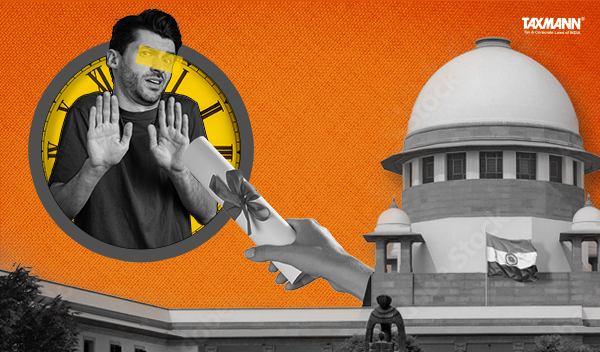CBDT Rightly Refused Request for Condonation of Delay as Assessee Was Regularly Filing Belated Returns | HC
- Blog|News|Income Tax|
- 2 Min Read
- By Taxmann
- |
- Last Updated on 7 June, 2024

Case Details: Lava International Ltd. v. Central Board of Direct Taxes - [2024] 163 taxmann.com 148 (Delhi)
Judiciary and Counsel Details
- Yashwant Varma & Purushaindra Kumar Kaurav, JJ.
- Rajesh Mahna, Ms Sonia Sharma & Mayank Kouts, Advs. for the Petitioner.
- Sunil Agarwal, SSC, Shivansh B. Pandya, Viplav Acharya, JSCs & Utkarsh Tiwari, Adv. for the Respondent.
Facts of the Case
In the present case, the petitioner preferred a writ petition against the order passed by the CBDT, refusing to invoke the powers of condonation of delay for the return filed by the petitioner for the assessment year 2020-21.
High Court Held
The power of condonation of delay is otherwise conferred under section 119(2) of the Income Tax Act, 1961. The High Court observed that the CBDT, while dealing with the prayer for condonation as was made, took into consideration the following facts:
(a) The applicant claimed that due to the constant challenges arising due to the COVID-19 pandemic, it could not file the ITR for FY 2019-20 on time. However, the last date for filing ITR was extended up to 15.02.2021, but even after that, the applicant had not filed its ITR within time. The financials for the year under consideration were signed on 31st July 2020, and ITR was filed on 30.03.2021. Hence, this was merely negligence on the applicant’s part, which cannot be construed as reasonable grounds for not filing the ITR.
(b) The petitioner claimed that it had been a law-abiding person and always complied with tax obligations in a timely manner, and this delay was a one-off aberration. However, as per the AO report, the petitioner had filed its return u/s 139(4) for AYs 2019-20, 2020-21, 2022-23. Thus, it can be observed that the applicant is regularly filing belated returns, which is not an aberration.
(c) The petitioner also claimed that the delay in filing ITR was due to financial crisis and cash crunch during the period. However, as per P&L for the year ending 2020, the petitioner showed a profit of 248.05 million, which is more than the previous year. Also, as per the cash flow statement for the year ending 2020, total cash equivalents were recorded as 123.35 million. This positive cash flow contradicts the claim of a financial crunch.
The applicant could have engaged in proactive financial planning to meet its tax obligations within the prescribed time frame. Thus, this justification of the applicant was not tenable and doesn’t seem genuine. It cannot be construed that there were circumstances beyond the control in complying with tax obligations.
Disclaimer: The content/information published on the website is only for general information of the user and shall not be construed as legal advice. While the Taxmann has exercised reasonable efforts to ensure the veracity of information/content published, Taxmann shall be under no liability in any manner whatsoever for incorrect information, if any.



 CA | CS | CMA
CA | CS | CMA
